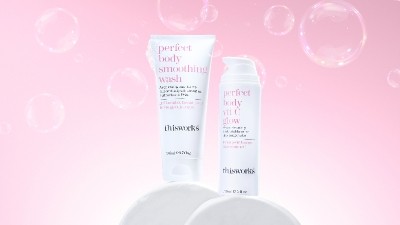Beauty Broadcast Video Series
Skin-mind connection: Psychodermatology will play key role in tackling oily skin, scalp health concerns in APAC
When we are under stress, our bodies release cortisol, one of the stress hormones. The overproduction of cortisol can impact our mental health and skin greatly.
It can increase inflammation, slow down wound healing, increase oil production, and negatively affect skin conditions such as eczema or psoriasis.
With an increased interest in mental health, the connection between our psychological well-being and skin health – psychodermatology – is emerging as a compelling concept.
“We're all leading more stressful, more busy lives. People have a lot more anxiety to do with the cost of living, social media, so many other influences. And this really shows in the skin. If we can use active ingredients in personal care products that help improve the way our skin feels and looks, it's one aspect we can control in our ever increasingly busy lives,” Belinda Carli, director of the Institute of Personal Care Science.
Market intelligence company Mintel highlighted the practice of psychodermatology as among its key trends for 2024.
“We need ways to balance that out by using skin care that addresses the physical concerns we see and also helps us feel better because we can't necessarily change our lives, but we can definitely help our skin,” said Carli.
Speaking on the Beauty Broadcast, Carli predicted that the psychodermatology trend in APAC will focus more on oily skin and scalp health.
“In the Asian space, we'll probably see more actives that will address oilier skin concerns and scalp concerns. That's my prediction. I think we'll see some actives in that space with that mind-skin connection that helps support hair and scalp. Because the scalp is skin too, and there's a lot of flaking and dryness, and it impacts hair growth and hair loss too.”
On the market today, we have seen a number of ingredient makers develop actives that addressing the consumers’ quest for mind-skin wellness.
Importantly, there have been advancements in proving efficacy, which is of paramount importance.
“Definitely in the way they're testing the actives for clinical efficacy and showing how these actives have that mind-skin connection and benefits for the appearance of the skin, particularly where it is impacted by stress and anxiety.
“By having that clinical efficacy data, by having the in vivo results that you can actually market to consumers about improving the appearance and condition of the skin, that's where it's really growing,” said Carli.
To find out more about psychodermatology and the mind-skin connection, check out the full video above.


![Indus Valley is working to corner 30% of India's online premium boxed hair colour market. [Indus Valley]](/var/wrbm_gb_food_pharma/storage/images/_aliases/wrbm_medium/publications/cosmetics/cosmeticsdesign-asia.com/article/2024/07/26/indus-valley-aims-to-secure-30-of-india-s-online-premium-hair-colour-market-with-organic-offerings/17594932-5-eng-GB/Indus-Valley-aims-to-secure-30-of-India-s-online-premium-hair-colour-market-with-organic-offerings.jpg)
![DR.CI:LABO expects brand-supplier partnerships gain more public prominence as consumers interest in skin care grows online. [Dr.Ci:Labo]](/var/wrbm_gb_food_pharma/storage/images/_aliases/wrbm_medium/publications/cosmetics/cosmeticsdesign-asia.com/article/2024/07/22/brand-supplier-partnerships-will-come-to-the-fore-amid-the-online-skin-care-landscape-dr.ci-labo/17576755-1-eng-GB/Brand-supplier-partnerships-will-come-to-the-fore-amid-the-online-skin-care-landscape-DR.CI-LABO.png)















